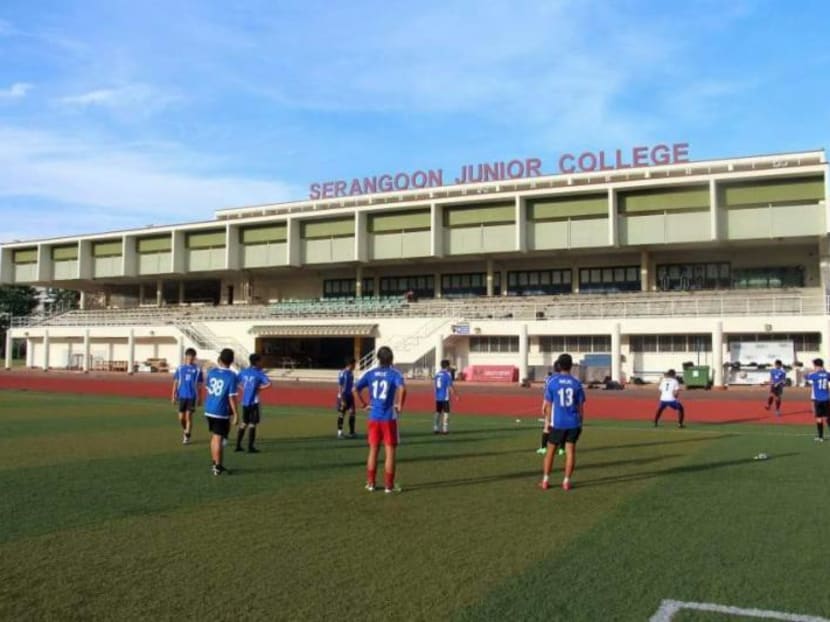School mergers painful, but necessary: Ng Chee Meng
SINGAPORE — If things had been left as they were, “several” junior colleges (JCs) would only be able to fill less than half of their desired JC1 intakes, with some possibly struggling to fill even 200 places, said Education Minister (Schools) Ng Chee Meng on Thursday (April 27), commenting on the mergers for the first time.

Serangoon Junior College is one of eight junior colleges affected by the mergers. Photo: Shawn Tiang
SINGAPORE — If things had been left as they were, “several” junior colleges (JCs) would only be able to fill less than half of their desired JC1 intakes, with some possibly struggling to fill even 200 places, said Education Minister (Schools) Ng Chee Meng on Thursday (April 27), commenting on the mergers for the first time.
Last week, the Ministry of Education (MOE) announced its biggest school merger exercise to date, with 28 schools — including, for the first time, JCs — to be consolidated in 2019.
The announcement triggered a public outcry, with some criticising the move, given that Eunoia JC opened its doors just this year while the Government had built three JCs — including Innova JC, which will be absorbed by Yishun JC — between 1999 and 2005.
Mr Ng reiterated that the decision to merge schools was a “painful but necessary” one. “Some, including close friends, have given me your heartfelt feedback. I appreciate your views. Many told me they understand that what we are doing is necessary, but when it comes to cherished memories, we know that feelings run deep,” he wrote on Facebook. “Some of you also expressed uncertainty over the transition process ... I personally agonised over the decision and explored different possibilities.”
In particular, the decision to merge the JCs was “a most difficult choice we have to face”.
Nevertheless, with a sharp drop in JC1 cohorts in the coming years, the low intake would “limit our students’ educational and co-curricular activities experiences”, he said.
“My educators and I think this cannot be good for our students. We do not take school mergers lightly. We only proceeded with these mergers as we are sure it is for the better for our students to come,” he said.
Several readers have written to this newspaper’s Voices section on the mergers. Responding to the readers’ feedback, Ms Liew Wei Li, MOE Deputy Director-General of Education (Schools) and Director of Schools, noted that “having to merge schools does not mean no more new schools, which we need in newer estates with growing demand”.
She added: “We should also be open to starting new schools that can offer our students a different and valuable educational experience.”
Hence, despite falling birth rates, MOE started Eunoia JC, which had its first Integrated Programme (IP) intake of Secondary One students in 2013, and also set up two specialised secondary schools — Crest (in 2013) and Spectra (in 2014) — to provide students in the Normal (Technical) course with more options.
Some observers have questioned whether the JCs chosen to be subsumed were selected because they were “neighbourhood schools”, and not among the elite band of JCs.
Responding to TODAY’s queries, MOE said: “All our schools and JCs are committed to provide a holistic and rigorous education for all their students, regardless of the profile of their student intakes. “They each have strong teams of educators and staff that provide quality holistic education to meet their students’ needs,” MOE said. “In terms of academic outcomes, there are many students who performed well at the A-Levels from across all our JCs. Each JC also has its respective strengths in co-curricular activities, special programmes ... and school culture and ethos.”
In his Facebook post, Mr Ng said it was understandable that “many feel strongly” about the mergers. “This decision affects us personally, as students, alumni, parents and teachers,” he said.
He added: “It is not an easy transition, but let us — students, alumni, parents and teachers — all work at it together, to honour the identities of our schools even as we make the necessary adjustments for the future.”






